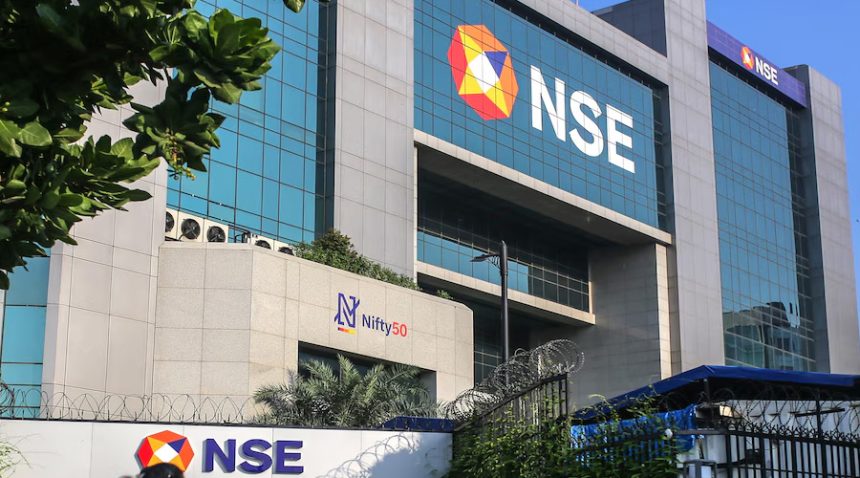IFCI holds an indirect ₹13,000 Cr stake in NSE via SHCIL
The National Stock Exchange (NSE) of India is preparing for its long-awaited initial public offering (IPO), and one lesser-known company that could benefit significantly is IFCI Limited. This public-sector financial institution holds an indirect but valuable stake in the NSE through its majority ownership in the Stock Holding Corporation of India (SHCIL). With investor excitement building around the NSE’s listing, many are wondering whether IFCI’s shares will rise further as a result.
IFCI’s Link to NSE
IFCI Limited owns around 52.86% of SHCIL, and SHCIL itself holds a 4.4% stake in the NSE. This gives IFCI indirect exposure to NSE’s growing valuation. NSE is one of the largest and most profitable stock exchanges in the world, and its IPO is expected to attract strong investor interest. If the IPO goes through and NSE becomes a listed company, the value of SHCIL’s holding in NSE could be unlocked, indirectly boosting IFCI’s balance sheet.
Estimates suggest that NSE’s unlisted shares are currently valued at about ₹2,300 each in the grey market. At this rate, SHCIL’s stake is worth around ₹25,000 crore. Since IFCI owns more than half of SHCIL, its share of this value could amount to roughly ₹13,000 crore. This hidden value has sparked renewed interest in IFCI’s stock, especially since there are ongoing efforts to merge SHCIL with IFCI, which would give IFCI direct control over this valuable asset.
Stock Market Reaction to the News
The stock market has already started responding to this potential windfall. IFCI shares have seen a strong rally in recent months. Over the past three months, the share price has climbed nearly 47%, and at one point, it jumped as much as 63% in just a single month. This surge came as investor excitement grew around the possible NSE IPO and the positive impact it could have on IFCI’s financial position.
The high trading volumes and rapid price increase suggest that the market is starting to price in the future benefits from IFCI’s stake in NSE. However, such sharp gains also come with the risk of short-term corrections, especially if the IPO faces delays or the SHCIL merger takes longer than expected.
Financial Position of IFCI
IFCI has been going through a transition in its business model. Earlier known for its lending operations, the company struggled in the past due to rising bad loans and limited growth. However, recent quarters have shown improvement. In the quarter ending March 2025, IFCI posted a consolidated net profit of ₹273 crore, which marked a year-on-year increase of over 25%. For the full financial year 2024-25, the company reported a net profit of ₹171 crore.
Along with profit growth, IFCI has also reduced its debt levels and improved operational efficiency. The Indian government’s capital infusion of ₹500 crore has further strengthened the company’s balance sheet. These improvements, along with the hidden value in its SHCIL stake, have helped build investor confidence in the company’s prospects.
Progress on the NSE IPO
NSE’s IPO has been in the news for several years but faced delays due to regulatory issues and internal challenges. Now, the process appears to be gaining momentum. The Securities and Exchange Board of India (SEBI) has indicated that it is willing to move forward with the IPO. NSE has reportedly proposed a settlement of around ₹1,600 crore to resolve past regulatory concerns. If the settlement is approved, it could pave the way for the IPO to happen sometime in the next financial year.
Unlisted shares of NSE have been trading at record prices in the private market, signaling strong demand and confidence among institutional investors. A successful public listing of NSE would not only unlock value for its direct shareholders but also boost the valuation of companies like SHCIL and, in turn, IFCI.
How IFCI Could Benefit
If the IPO goes through and the SHCIL-IFCI merger is completed, IFCI could experience several benefits:
Increased Net Worth: The direct inclusion of SHCIL’s NSE stake into IFCI’s books could significantly increase the company’s net asset value.
Funding Opportunities: IFCI may use this capital to revive its lending business, offer advisory services, or expand into other financial areas.
Stronger Market Image: A stronger balance sheet and improved profitability could change the market’s perception of IFCI from a struggling public-sector lender to a valuable financial institution.
Potential for Strategic Partnerships: With a larger capital base and visible assets, IFCI could attract partnerships, joint ventures, or even private investments.
Risks and Challenges
Despite the strong upside potential, there are still some challenges to consider. The timeline for both the NSE IPO and the SHCIL-IFCI merger remains uncertain. Regulatory approvals are still pending, and execution could take longer than expected. Any delay in these processes could dampen short-term investor sentiment.
Additionally, the recent surge in IFCI’s stock price may be partly driven by speculation. Technical indicators earlier in 2025 showed the stock becoming overbought, raising the possibility of a correction. Moreover, while the NSE stake adds value, IFCI’s core business performance will still be important in the long run.
Lastly, the company’s book value per share is still relatively low compared to its current stock price. If future earnings do not grow fast enough to match the stock’s valuation, it could create a mismatch between price and fundamentals.
Final Thoughts
IFCI is uniquely positioned to benefit from the upcoming NSE IPO due to its significant indirect stake through SHCIL. The expected listing of NSE and the ongoing restructuring plan to merge SHCIL with IFCI could unlock thousands of crores in hidden value. This development has already led to a sharp rise in IFCI’s share price, and the stock may continue to perform well if the IPO process moves forward smoothly.
However, investors must also be aware of the risks involved, including possible regulatory delays and the speculative nature of the recent price surge. The future of IFCI will depend not only on the NSE listing but also on how effectively the company uses this opportunity to strengthen its core business.





